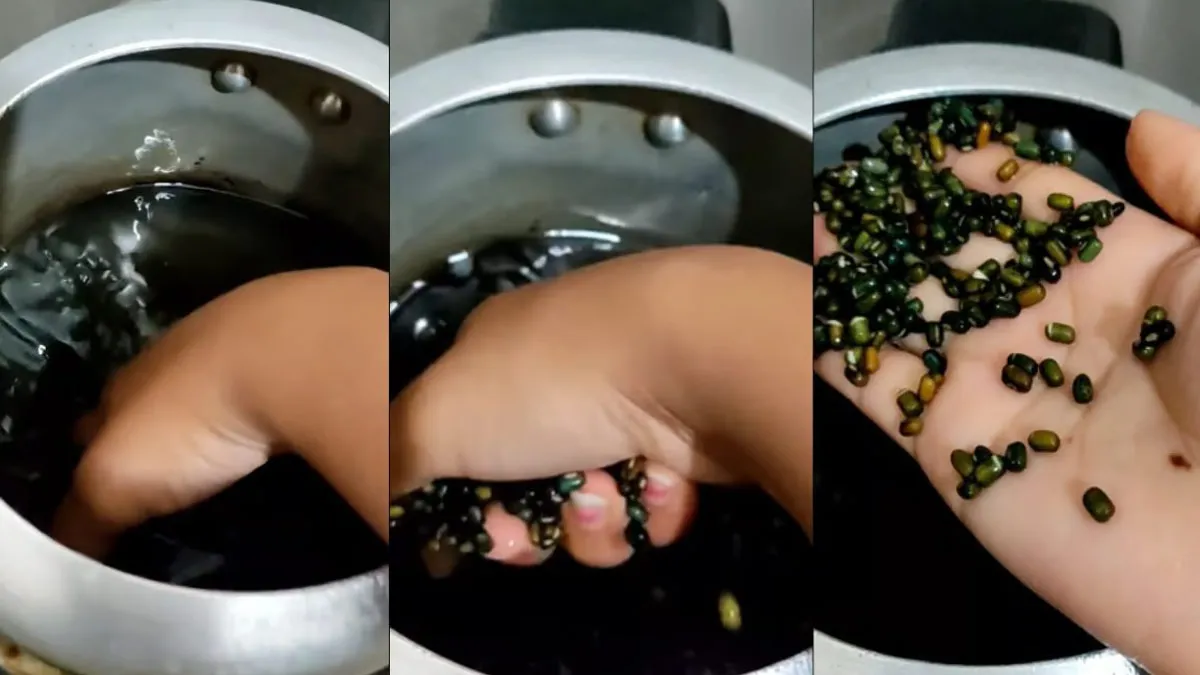
In recent times, concerns about food adulteration have taken center stage, especially when it comes to essential food items like lentils. Black lentils, also known as Kali Dal, are a staple in many households and are widely consumed for their high protein and nutritional content. However, a viral video has raised alarm about the authenticity of black lentils from Himachal Pradesh, as a woman discovered the presence of a green hue under the black coating after soaking them in water. This has led to heightened awareness of food adulteration, urging consumers to take extra precautions when purchasing and consuming food items.
Table of Content:-
While lentils are an essential source of protein for vegetarians, especially in a country like India, the possibility of adulteration poses serious health risks. Here are some crucial tips that can help you identify and avoid adulterated products, ensuring that the food you consume is safe and healthy.
Tips Every Consumer Should Know To Avoid Adulterated Products
View this post on Instagram
Inspect Packaging and Labels
One of the easiest ways to spot adulterated food is by examining the packaging. Always check for intact seals, expiry dates, and nutritional labels. Ensure the product is certified by organizations like FSSAI (Food Safety and Standards Authority of India). Poor packaging, incomplete labelling, or the absence of certification marks could be a red flag, indicating substandard or adulterated goods.
Conduct Simple Home Tests
If you're unsure about the quality of your black lentils or any other food items, simple home tests can help you identify adulteration. For example, you can dissolve sugar in water to detect the presence of chalk powder or add a drop of iodine to rice to check for starch adulteration. These low-cost tests can help you detect impurities without needing specialized equipment.

Avoid Loose, Unbranded Products
Loose products like oil, salt, and spices are especially vulnerable to adulteration, as they often lack quality checks and proper packaging. Always choose branded, sealed products that undergo strict testing procedures. These products are more likely to meet safety standards and reduce the risk of contamination.
Also Read: Trying To Lose Weight? Nutritionist Reveals 4 Foods To Avoid When Dining Out
Opt for Seasonal and Whole Foods
Adulteration is more common in out-of-season fruits, vegetables, and lentils. Such items are often treated with ripening agents or synthetic dyes to improve their appearance. To minimize the risk, choose seasonal produce and locally sourced lentils. Additionally, buy whole spices instead of powdered ones, as ground forms are more likely to be mixed with inferior substances to bulk up the quantity.
Wash and Clean Thoroughly
Another simple yet effective way to reduce the risk of consuming adulterated food is by washing and cleaning your items properly. Rinse fruits, vegetables, and lentils thoroughly with water. You can also use saltwater or a baking soda solution to remove surface chemicals and dyes. Peeling fruits and vegetables further reduces the risk of consuming surface contaminants.
Watch for Unusual Colours and Smells
Adulterated foods often exhibit unnatural colours or strong synthetic smells, which are caused by added dyes and chemicals. For instance, lentils that are coated with artificial colours may appear darker than usual. Similarly, milk contaminated with detergent or formalin will often have an odd smell. Be vigilant of any unusual visual or olfactory signs before consumption.

Check for Artificial Additives
Processed foods are often laced with artificial preservatives, colourants, and flavour enhancers. Always read ingredient labels carefully to avoid products containing excessive or unknown additives. Whenever possible, try to choose natural alternatives, such as homemade snacks, to minimize exposure to harmful substances.
Be Cautious of Unhygienic Sources
Street food and meals prepared in unhygienic conditions are more likely to be adulterated. Poor-quality oil, contaminated water, and substandard raw materials are frequently used in such settings. It’s always safer to opt for food prepared in hygienic restaurants or, better yet, home-cooked meals to ensure food safety.
Bottomline
Adulteration in food is an unfortunate reality that affects the safety of what we consume. However, by following these simple tips, you can reduce the risk of consuming adulterated products, especially with regard to essential food items like black lentils. Being vigilant about sourcing your food from trusted vendors, checking labels, conducting home tests, and practising good hygiene can go a long way in ensuring the safety of your diet. Stay informed and prioritize your health by making educated choices when purchasing food.
Also watch this video
How we keep this article up to date:
We work with experts and keep a close eye on the latest in health and wellness. Whenever there is a new research or helpful information, we update our articles with accurate and useful advice.
Current Version